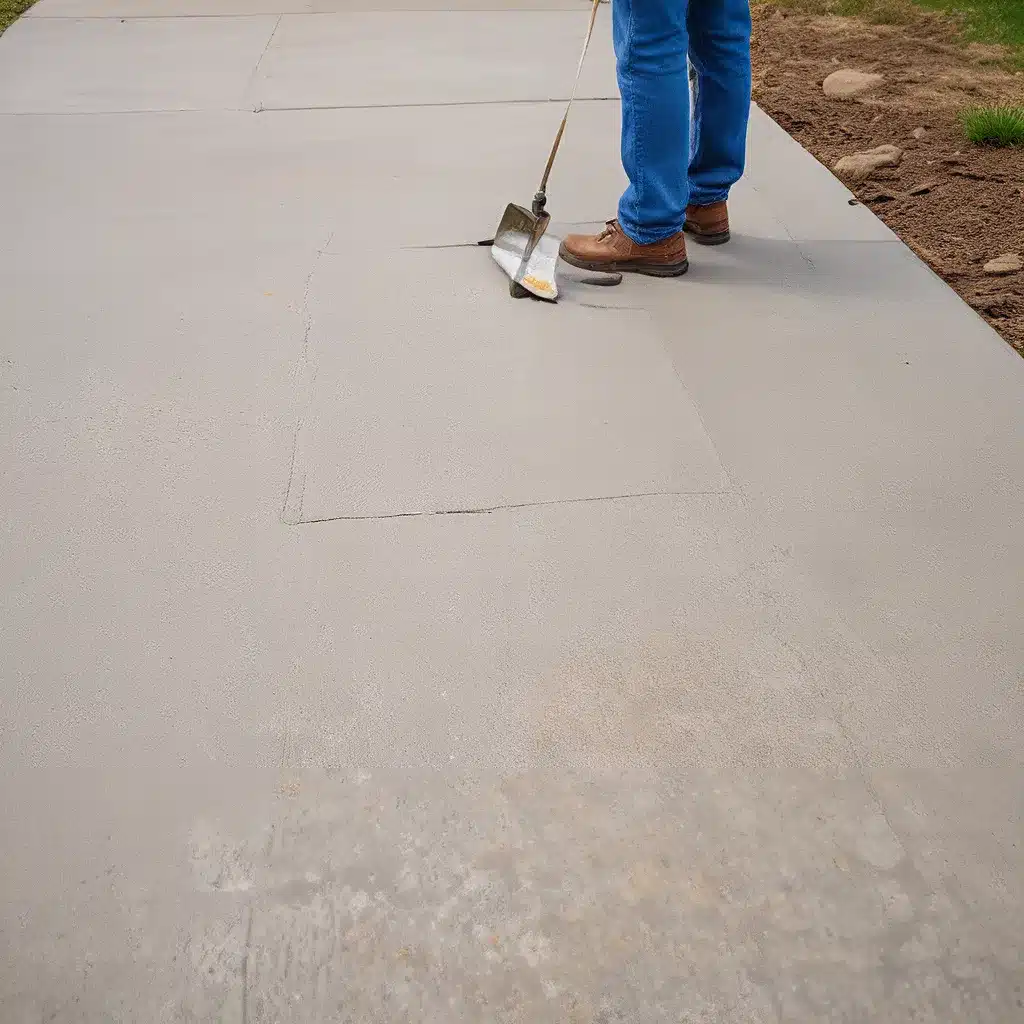
Understanding the Permit Requirements
Maintaining and repairing concrete surfaces is an important part of home ownership in Columbus, Ohio. Whether you’re resurfacing a driveway, pouring a new patio, or sealing your existing concrete, it’s crucial to navigate the local permit process correctly. In Columbus, the Department of Building and Zoning Services (BZS) is responsible for overseeing the permitting requirements for concrete work.
According to the BZS website, a building permit is required for any “installation, repair, maintenance, or location of any swimming or wading pool that is capable of a water depth of more than 24 inches.” Additionally, the Columbus Zoning Code regulates the location and size of driveways, parking pads, and other exterior concrete surfaces.
Key Permit Requirements for Concrete Work in Columbus:
- Zoning Clearance: Zoning clearance is required for new driveways, parking pads, or any expansion of existing concrete surfaces. The Zoning Code limits where additional parking can be added.
- Building Permit: A building permit is required for the installation, repair, or maintenance of any swimming pool or wading pool with a water depth greater than 24 inches.
- Electrical Permit: Any electrical work, such as installing lighting or a pool pump, will require a separate electrical permit.
- Plumbing Permit: If the concrete work involves any plumbing, such as drainage or pool equipment, a plumbing permit will also be necessary.
It’s important to note that the permit requirements can vary depending on the specific zoning district and the nature of the concrete work. Homeowners should always check with the BZS to ensure they are following the correct procedures.
The Permit Application Process
The permit application process for concrete work in Columbus can be completed either online through the Citizen Access Portal or in-person at the BZS office. Regardless of the method, homeowners will need to submit the following:
- Building Permit Application: This is the primary form that must be filled out and submitted for any concrete project.
- Homeowner’s Permit Affidavit: If the homeowner is doing the work themselves, this affidavit must be attached to the Building Permit Application.
- Plans and Specifications: Two sets of plans and specifications must be submitted, detailing the proposed concrete work.
Once the application and supporting documents have been submitted, the BZS will review the plans for compliance with the Ohio Building Code, Columbus Building Code, and Columbus Zoning Code. This process can take up to 20 business days, during which time the homeowner or contractor will need to pay the applicable fees.
According to the U.S. Army Corps of Engineers, the specific fees for concrete work will depend on the scope of the project and the required inspections. Homeowners should refer to the latest Fee Schedule on the BZS website for the most up-to-date information.
Scheduling Inspections and Obtaining Approvals
Once the permit has been issued, the homeowner or contractor can schedule the necessary inspections through the Citizen Access Portal or by phone. The BZS inspectors will visit the site to ensure the concrete work is being performed in accordance with the approved plans and applicable building codes.
Inspections may be required for various stages of the project, such as:
- Footing Inspection: For any new concrete foundations or footings.
- Rough-in Inspection: For any plumbing or electrical work related to the concrete project.
- Final Inspection: To verify the completed concrete work meets all code requirements.
After the final inspection is passed, the permit will be automatically closed, and the homeowner will receive a Certificate of Occupancy (if applicable) or a Completion Certificate for the concrete work.
It’s important to note that the permit is valid for 12 months from the date of plan approval. If construction has not commenced within this time frame, an extension may be requested. Additionally, if work is delayed or suspended for more than 6 months, two 6-month extensions can be obtained.
Common Concrete Repair and Resurfacing Options
Once the permit process is complete, homeowners in Columbus have several options for concrete repair and resurfacing:
Concrete Resurfacing:
– Overlaying the existing concrete with a thin, new layer of cement-based material
– Provides a fresh, updated appearance while extending the life of the concrete
Concrete Sealing:
– Applying a protective coating to the concrete surface
– Helps prevent damage from weathering, chemicals, and wear and tear
Concrete Replacement:
– Removing the existing concrete and pouring a new slab
– Necessary for severely damaged or deteriorated concrete
Concrete Crack Repair:
– Filling and repairing cracks in the concrete surface
– Can be done as a standalone project or in conjunction with resurfacing or sealing
Homeowners should carefully consider the condition of their concrete, the desired aesthetic, and the long-term maintenance requirements when selecting the appropriate repair or resurfacing option.
Hiring a Licensed Concrete Contractor
While some homeowners may choose to tackle minor concrete projects themselves, it’s generally recommended to hire a licensed and registered concrete contractor in Columbus. These professionals have the necessary expertise, equipment, and insurance to ensure the work is done safely and to code.
Concrete repair and resurfacing companies in Columbus can guide homeowners through the permit process, handle all the necessary paperwork, and provide a warranty on their workmanship. This can give homeowners peace of mind and help avoid any issues with the city’s inspection process.
When selecting a concrete contractor, homeowners should verify the following:
- License and Registration: The contractor must be licensed and registered with the BZS to perform work within the city.
- Insurance: The contractor should have liability and workers’ compensation insurance to protect the homeowner in case of any accidents or injuries.
- References: Ask for references from previous clients and check online reviews to ensure a track record of quality work and customer satisfaction.
By following the proper permit procedures and working with a qualified concrete contractor, Columbus homeowners can ensure their concrete repair and resurfacing projects are completed safely, efficiently, and in compliance with local regulations.


